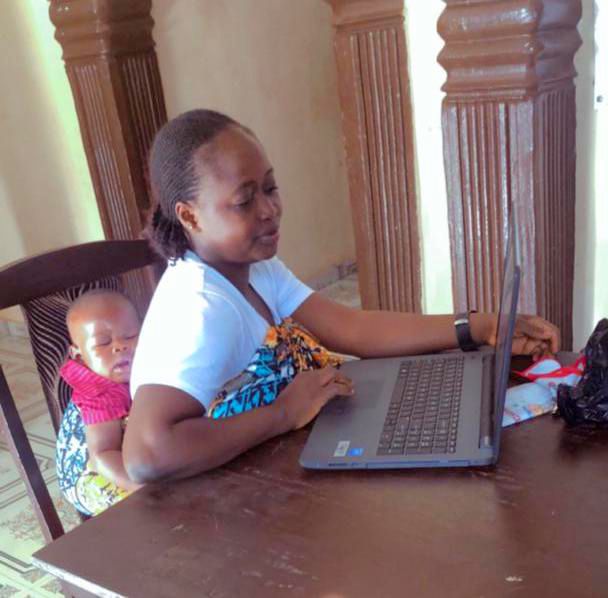Isata M Kamara is the founder of GEDSA.
Gender Equality and Development for Social Action (GEDSA)
Background
Gender Equality and Development for Social Action (GEDSA) was born from the experience and passion of the lead founder during her childhood and teenage years. Gender discrimination and cultural practices have forced many girls out of school and made their dreams of a better life collapse along the way. The organisation is registered with the Bombali District Council and the Ministry of Social Welfare in Sierra Leone.
In Africa, Sierra Leone in particular is a society that still sees the position of women to be just housewives and cooks for their husbands. Sierra Leone is rated among one of the poorest countries in the world, the country has a population of over seven million according to the 2021 National Census (Male 3,716,263, Female 3,825,378, Total 7,541,641¹) and the priority according to culture is to prioritise boys’ education over girls. This is reflective of the education rates in the country as only 47% of the population was educated between the period 2004-2022. (2)
Impact of The Steve Sinnott Foundation in supporting education
Since the establishment of the partnership between The Steve Sinnott Foundation, the Sierra Leone Teachers Union, and Gender Equality and Development for Social Action, many interventions have been taken in the Bombali District in Northern Sierra Leone, Porto Loko District in the North-Western Region and Bo District in the Southern Region of Sierra Leone. These range from the training of school leaders on gender based violence, supporting school girls in the making of reusable sanitary pads, engaging teenagers on election violence, continuous engagement with schools to ensure girls have the space to speak up and report any form of violence (physical, sexual or psychological) through established structures like school mentors and guardian counsellors.
Funding support from The Steve Sinnott Foundation UK has seen girls making their own reusable sanitary pads, which has helped many girls come to school during their menstrual periods as they could not always afford to buy them, and become confident in speaking up.
GEDSA continues to make inroads in engaging stakeholders through radio discussions and community meetings in making sure children, especially girls and children with disabilities, are provided with support and care. The provision of learning materials including bags, books, pens, pencils, mathematical sets, sharpeners were provided for 100 children. The first phase targeted 50 beneficiaries and offered training for school leaders and parents to provide them with the skills and techniques to support them.
Governments are charged with the responsibility to ensure all economic, social and political aspects of a country are fully provided, but the status of Sierra Leone makes this impossible. So the need for partnerships and support from like minded organisations is essential for the achievement of SDG4.
The Steve Sinnott Foundation is fundamental in supporting GEDSA towards the achievement of this goal. Over this period of supporting GEDSA, over 2000 girls and boys in 15 schools have been taught about hygiene, drugs and violence, the importance of education and much more. 60 school leaders and over 100 parents have been reached with educational messages through support from the Steve Sinnott Foundation over a four year period. The aim is to continuously engage schools as an ongoing process each school year.
References:
- https://www.statistics.sl/images/StatisticsSL/Documents/Census/MTPHC_Provisional_Results/2021_MTPHC_Provisional_Results.pdf
- https://www.macrotrends.net/countries/SLE/sierra-leone/literacy-rate
This article first appeared in Engage 27.





